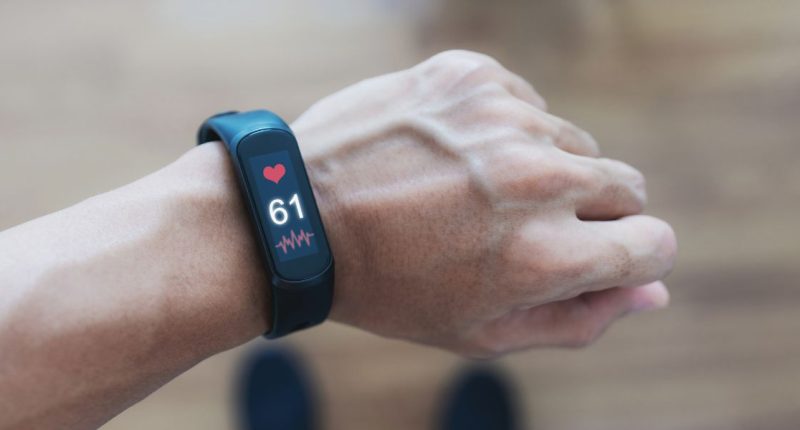Activity devices such as Fitbit can accurately monitor heart conditions, a new study has highlighted.
Research conducted by the University of Birmingham has revealed that fitness trackers are as good as hospital tests for monitoring heart health.
During the trial, a team of academics examined how fitness devices impact individuals with atrial fibrillation and heart failure – two conditions that impact millions of Brits.
- 95% of fitness trackers covered in harmful bacteria
- Walking 10,000 steps is good for our health after all
- Heart failure risk cut by a quarter in over-60s with 3,600 steps a day
They looked at whether activity trackers can identify how well the participants were responding to common heart medication they are taking for their heart health, such as digoxin and beta-blockers.
Each participant was given a Fitbit Charge 2 to use during the study instead of attending regular hospital check-ups.
The researchers used AI to analyse the data provided by the fitness trackers to assess how well the users’ heart medication is working.
They discovered that activity devices are as effective as traditional tests often used in hospital clinics for monitoring heart health.
Impacting one million people in the UK, heart failure means that the heart is unable to pump blood around the body properly, usually occurring because the heart has become too weak or stiff.
Heart failure is currently incurable, but medications can ease symptoms such as fatigue and breathlessness.
Atrial fibrillation is a condition that causes an irregular and often fast heartbeat, affecting 1.4 million people in the UK.
- Less than 5,000 steps a day still associated with good health
- Patents reveal Fitbit could measure blood pressure before Apple
- Prediabetes more common among adolescents with poor social determinants of health
First author Professor Dipak Kotecha said: “This study shows the potential to use this new technology to assess the response to treatment and make a positive contribution to the routine care of patients.
“Heart conditions such as atrial fibrillation and heart failure are expected to double in prevalence over the next few decades, leading to a large burden on patients as well as substantial healthcare cost.”
Professor Kotecha added: “This study is an exciting showcase for how artificial intelligence can support new ways to help treat patients better.”
Fitbit did not provide the devices, which were paid for by a research body, nor did the firm who make them have any input into the study.




